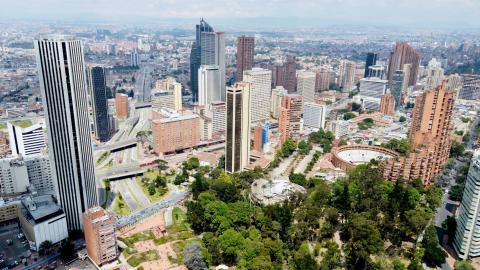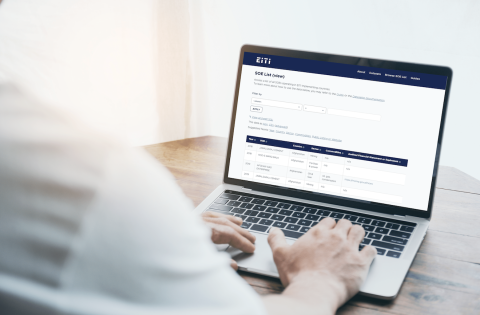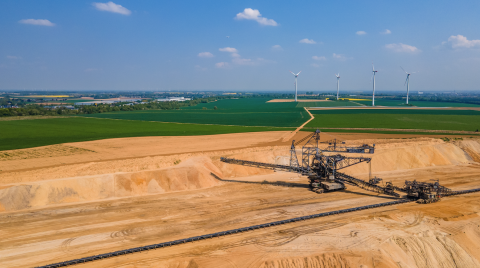
Democratic Republic of the Congo: Pioneering reporting on state-owned extractive companies
New report underscores the need for governance reforms in state-owned extractive companies.
A recent study conducted by the DRC EITI examined the financial statements of nine state-owned enterprises (SOEs) operating in the DRC’s extractive sector, with the aim of understanding whether these companies are governed in line with national regulations. The independent report, which provides an analysis of 2017 and 2018 statements, presents recommendations to improve production potential and profitability of SOEs as a basis for strengthening their competitiveness and their contributions to the national economy.
A number of recent developments bring opportunities to make progress on SOE governance: the appointment of a government headed by Prime Minister Jean-Michel Sama Lukonde Kyenge, who formerly led the mining SOE Gécamines; a three-year, USD 1.5 billion financing package by the International Monetary Fund; and growing international scrutiny around the sourcing of strategic minerals.
Surfacing weaknesses
The study identified several deviations between policy and practice regarding SOEs’ financial transfers to the state. Previous EITI reporting highlighted that SOEs are required to transfer 50% of “pas-de-porte” payments (similar to signature bonuses) and royalties to the Treasury. Yet, the study found that there might be exceptions for such payments, for example where SOEs themselves document the value of the reserves covered by licenses. In addition, some SOEs sold their assets or equity interests in companies without conducting the required open tender processes. The study recommended measures to improve the enforcement of applicable regulations. It also proposed reforms to address ambiguities in current laws to ensure that SOEs are managed in line with their mandates.
SOEs often report consistent annual losses over long periods. Cominière acquired a 30% share in 2018 in at least eight joint ventures, even though its annual losses had more than quadrupled since 2016. Gécamines was asked to pay advances to tax agencies, despite there being no specific regulatory basis for such advances and no indication of whether these were to be deducted from future fiscal liabilities. Subsequently, Gécamines has relied on substantial lending from third parties – the study showed that it accumulated over USD 376 million in debt related to external loans in 2018, and an additional USD 214 million in debt related to its participation in joint ventures. Third parties providing loans included commodity trader Trafigura and copper company MMG Kinsevere.
The report also highlighted significant gaps in auditing and reporting practices by several SOEs. For three of these companies, the auditors concluded on a qualified opinion of the financial statements for both 2017 and 2018. The implementing decree in the 2018 Mining Code mandates that all active mining companies publish their financial statements, which was further reinforced by a commitment made by several SOEs at a DRC EITI workshop in May 2019. Despite this, none of the SOEs’ financial statements are publicly accessible today.
In line with encouragements under EITI requirements on statement participation, the consultants requested SOEs for information on their procurement, subcontracting and corporate governance. The study subsequently identified some weaknesses in these areas, for example that SAKIMA lacked a full Board of Directors and that several SOEs did not systematically follow public procurement procedures in their subcontracting.
Opportunities for a fuller picture
While the study enabled some first-time disclosures, the SOEs’ financial statements only provide a limited view of governance challenges. Financial statements are typically not available until a few months after the period under review. Often, they do not contain payments data required by the EITI Standard, such as information on quasi-fiscal expenditures.
Some local civil society groups have identified increasing transparency around contract negotiation as the next step in the DRC’s work on contract transparency. Additional EITI disclosures and close collaboration with oversight institutions can support debate around the process for negotiating and agreeing contracts between SOEs and private companies.
Disclosures of transactions within SOE groups are also vital to understand the financial relations between SOEs and their subsidiaries, joint ventures and affiliates, including dividends and payments collected, terms related to ownership changes and the sales of SOE assets. Such disclosures are especially important for transactions with companies linked to politically exposed persons. This was underscored in recent research by the coalition group Le Congo n’Est Pas à vendre (“The Congo is not for sale”), which examined losses in government revenues that resulted from contracts signed with businessman Dan Gertler.
Leveraging the EITI
With five ministers sitting on the DRC’s EITI Multi-Stakeholder Group (MSG), the recent nomination of a new government presents an opportunity for the DRC EITI to renew its commitment to transparency in the sector. The MSG has played a key role in convening discussions on SOE governance, and the DRC EITI’s 2021-2023 work plan sets out actions to improve SOE reporting.
Streamlining disclosures will be central to follow through on the study’s recommendations and shed more light on the governance of the DRC’s state-owned extractive companies. The study helped to build trust between the DRC EITI and some of these SOEs and facilitated engagement with their management teams. Gécamines subsequently started publishing some of the contracts governing its participation in joint ventures.
The DRC’s next Validation is scheduled to start on 1 January 2022. Strong engagement from civil society groups such as the Coalition pour la Gouvernance des Entreprises Publiques du secteur extractif will help the DRC EITI prioritise progress in improving SOE governance in the coming months. At its meeting last March, the MSG discussed a sales agreement for artisanally-mined cobalt between the Gécamines subsidiary Entreprise Générale du Cobalt (EGC) and Trafigura. The MSG concluded that it should undertake consultations with all stakeholders on the types of agreements that should be disclosed – and whether disclosures would potentially include commercial agreements between private parties – to better understand implications for SOEs and government revenues.
Congolese President Félix Tshisekedi is seeking to increase revenues from the sector to finance public sector reforms, including free primary education and anti-corruption measures. The EITI process can contribute to these national objectives, building on momentum around contract, tax and beneficial ownership transparency, and on demands from stakeholders for greater accountability in the sector.





